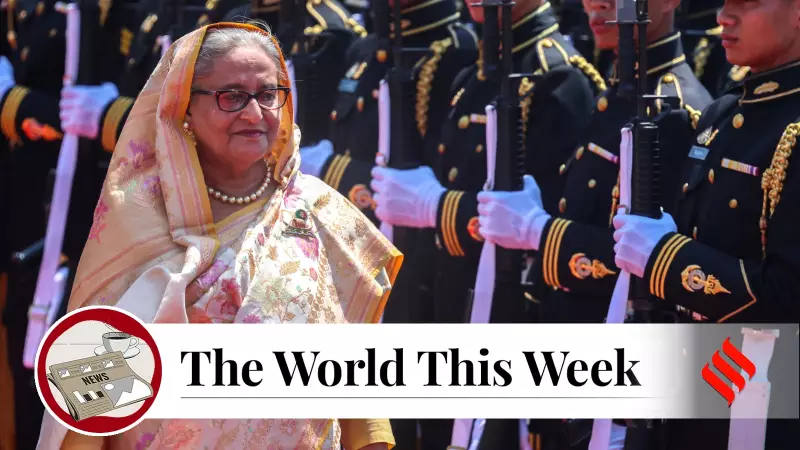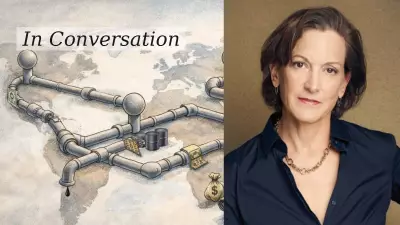
This week witnessed significant geopolitical developments that could reshape international relations, from strengthened bilateral ties in South Asia to potential shifts in the Ukraine conflict. Key events included Bangladesh Prime Minister Sheikh Hasina's crucial visit to India and revelations about Donald Trump's proposed peace plan for Ukraine.
Sheikh Hasina's Strategic India Visit
Bangladesh Prime Minister Sheikh Hasina arrived in New Delhi on June 21, 2024 for a two-day state visit that underscored the deepening partnership between the neighboring nations. The timing was particularly significant as it marked her first bilateral visit to India after both countries' recent elections.
During the visit, Prime Minister Narendra Modi and Sheikh Hasina witnessed the signing of multiple agreements covering diverse areas of cooperation. Several new partnership initiatives were launched, though specific details about the number and nature of these agreements weren't disclosed in the source material. The leaders engaged in comprehensive discussions about strengthening their bilateral relationship across multiple sectors.
This visit comes at a crucial juncture for Bangladesh, which has been experiencing economic challenges and seeking stronger regional partnerships. The engagement demonstrates India's continued focus on its 'Neighbourhood First' policy and Bangladesh's importance in regional geopolitics.
Trump's Controversial Ukraine Peace Proposal
In a development that could significantly impact the ongoing Russia-Ukraine conflict, details emerged about Donald Trump's proposed peace plan. According to reports, the presumptive Republican presidential candidate has been discussing a approach that would involve linking US aid to Ukraine with territorial concessions.
The proposal, as revealed in discussions between Trump and his advisors, suggests that Ukraine would be pressured to cede Crimea and the Donbas border region to Russia in exchange for continued American support. This plan would essentially freeze the current conflict lines and create a de facto division of Ukrainian territory.
This approach represents a dramatic shift from current US policy and has raised concerns among European allies and Ukraine supporters. The proposal highlights the potential foreign policy changes that might occur if Trump returns to the White House after the November elections.
NATO's 75th Anniversary Summit and Global Implications
The NATO summit in Washington from July 9-11, 2024 marks the alliance's 75th anniversary and comes at a critical moment for global security. World leaders are gathering to address multiple challenges, with the Ukraine conflict dominating discussions.
Key agenda items include strengthening Ukraine's defense capabilities and discussing its potential NATO membership. The summit also focuses on enhancing the military capabilities of member states in response to growing global threats. The discussions are particularly significant given the potential changes in US foreign policy depending on election outcomes.
The NATO gathering represents a crucial moment for Western unity and the future direction of the alliance amid evolving global power dynamics and security challenges.
Analysis and Strategic Implications
These developments collectively point to several important trends in global politics. The strengthening India-Bangladesh relationship underscores the importance of regional partnerships in maintaining stability and promoting economic growth in South Asia.
The revelations about Trump's Ukraine plan highlight how US presidential elections can dramatically alter international conflict dynamics. This potential policy shift could encourage other global powers to recalculate their strategic positions regarding the Ukraine war.
For UPSC aspirants and geopolitical analysts, these events demonstrate the interconnected nature of regional and global politics. The outcomes of these developments could have long-term implications for international relations, security architectures, and economic partnerships worldwide.
The coming months will be crucial in determining whether these preliminary discussions and visits translate into substantive policy changes that reshape the global order in significant ways.




